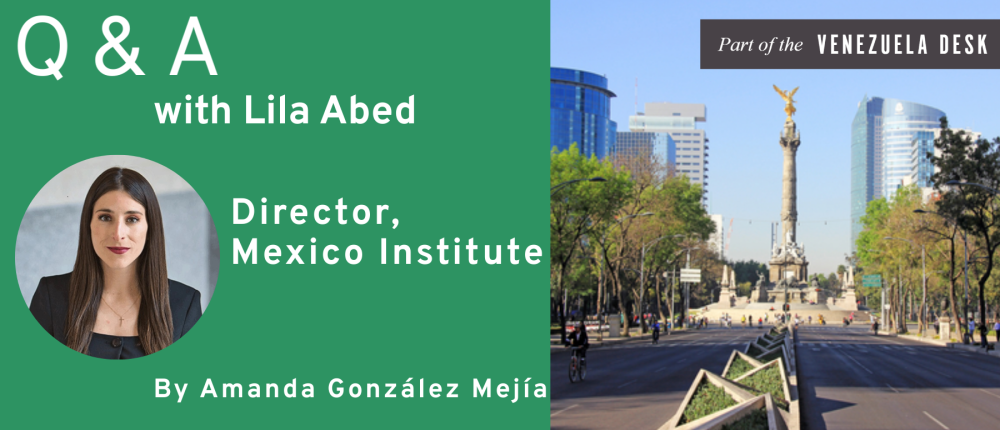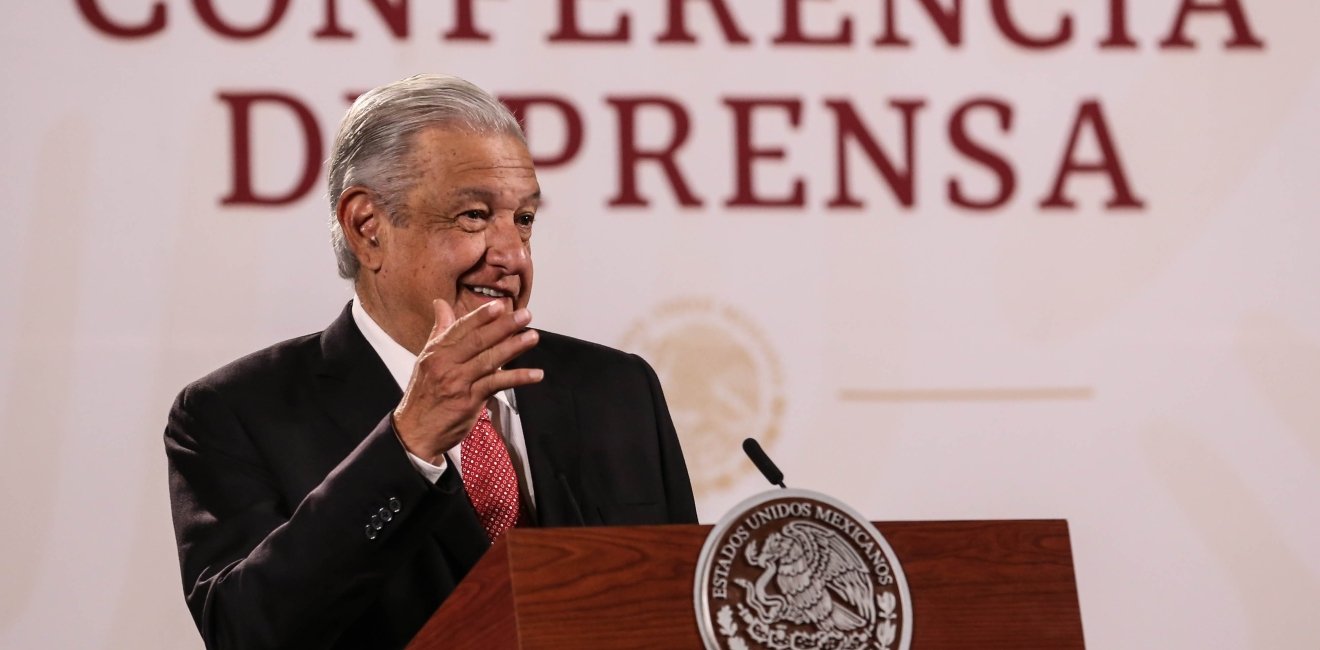
A blog of the Latin America Program

Q. AMLO’s recent comment that he saw no evidence of fraud in Venezuela’s July 28 election was not encouraging; it seems like he’s itching to recognize the official results. Still, for now, he is joining Brazil and Colombia in pressing Nicolás Maduro to release vote tallies from every precinct. What explains his approach to Venezuela, throughout his sexenio and today?
A. After AMLO took office in 2018, he established that, “the best foreign policy is a domestic one.” Though he cites the foreign policy principles enshrined in Mexico’s Constitution of non-intervention and respect for countries’ sovereignty and independence, AMLO has applied these principles in a contradictory and erratic fashion. Despite many countries recognizing Edmundo González as the winner, including the United States, AMLO, alongside other leftist leaders in the region, like Luis Inacio Lula da Silva and Gustavo Petro, has taken a more cautious approach, asking Venezuela to release detailed voting tallies before officially recognizing the result. That said, AMLO has stated that he will ultimately accept the decision of the Venezuelan electoral authority. His position is not surprising. Mexico’s president has meddled in the internal affairs of other countries when it serves his interests, but maintains a strict interpretation of non-intervention when it benefits him politically, as in the case of the recent elections in Venezuela.
Q: The US-Mexico relationship is always complex, and the July 25 arrest in Texas of El Chapo’s son and a top Sinaloa Cartel leader has further complicated relations. How hard is the US pressing Mexico to support a political transition in Venezuela? Does Washington’s view of the crisis matter to AMLO?
A. Even though the United States has recognized Venezuela’s opposition presidential candidate as the winner, it does not seem that the Biden administration will pressure Mexico to do the same. There are several issues on the US-Mexico bilateral agenda, like stemming migration and the flow of fentanyl and synthetic opioids into the US, that require Mexico’s cooperation, especially ahead of the US elections in November. The White House may not want to jeopardize cooperation by pressuring Mexico on Venezuela. Moreover, Mexico has at times served as an intermediary between the US and countries with which the US does not have friendly relations, and so Mexico’s moderate position on Venezuela’s election may serve US interests.
Q. AMLO has complained that the international community ignored his claims of fraud following his 2006 defeat in Mexico’s presidential election. Does that experience make him more likely to sympathize with the Venezuelan opposition?
A. AMLO narrowly lost his first presidential bid in Mexico’s 2006 elections to Felipe Calderon by less than 1 percentage point. He alleged that the results were fraudulent and demanded a full recount. He led marches and demonstrations in Mexico City and refused to concede. Following his second attempt to win the presidency, in 2012, he again asked for a recount. Since then, AMLO has held what appears to be a personal grudge against Mexico’s electoral authorities. Nevertheless, he is sympathetic to leaders, especially leftist ones, that face questions about the quality of elections in their countries.
Q. On July 31, Mexico refused to participate in an OAS debate on Venezuela’s rigged election and a resolution on the crisis failed to pass by one vote. “Why go to a meeting like that?” AMLO asked. What's his problem with the OAS?
A. AMLO has long considered the OAS to be an extension of US foreign policy interests in the Western Hemisphere. He has expressed on several occasions that the OAS is neither democratic nor autonomous, and that it only serves the interests of a few member states. AMLO denounced the OAS’s accusation that the Venezuelan government tampered with the election results. In general, he approaches the US and multilateral organizations with caution, given that in his view, they often intervene in the internal affairs of countries. AMLO has also criticized the Biden administration for intervening in the Venezuelan elections and has called for countries in the region to stop obsessing over the approval of foreign powers.
Authors



Latin America Program
The Wilson Center’s prestigious Latin America Program provides non-partisan expertise to a broad community of decision makers in the United States and Latin America on critical policy issues facing the Hemisphere. The Program provides insightful and actionable research for policymakers, private sector leaders, journalists, and public intellectuals in the United States and Latin America. To bridge the gap between scholarship and policy action, it fosters new inquiry, sponsors high-level public and private meetings among multiple stakeholders, and explores policy options to improve outcomes for citizens throughout the Americas. Drawing on the Wilson Center’s strength as the nation’s key non-partisan policy forum, the Program serves as a trusted source of analysis and a vital point of contact between the worlds of scholarship and action. Read more


Mexico Institute
The Mexico Institute seeks to improve understanding, communication, and cooperation between Mexico and the United States by promoting original research, encouraging public discussion, and proposing policy options for enhancing the bilateral relationship. A binational Advisory Board, chaired by Luis Téllez and Earl Anthony Wayne, oversees the work of the Mexico Institute. Read more

Explore More in Weekly Asado
Browse Weekly Asado
Dengue Haunts South America’s Summers

Lessons from Costa Rica’s Economic Transformation

Women and Latin America’s Digital Revolution

